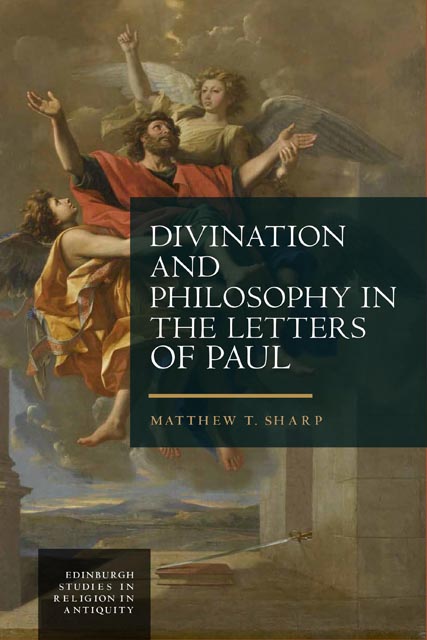Introduction: On Categories and Comparisons
Published online by Cambridge University Press: 02 June 2023
Summary
What is hidden from mortals we should try to find out from the gods by divination for to him that is in their grace the gods grant a sign. (Xenophon, Memorabilia 1.1.9)
Throughout his letters, Paul claims to convey the words and will of his God, and of that God’s Messiah, Jesus. This observation is painfully obvious, but has not generally received the attention it deserves in Pauline scholarship. For those studying his letters from a confessional perspective such an observation may be taken for granted or treated at the level of the general inspiration of scripture. For many lay readers of Paul the passages that need more explanation are those in which he claims not to be speaking directly for God (such as 1 Cor 7:12). For critical scholarship, the truth value of such claims is appropriately bracketed, and attention instead focuses on the development of his ideas within his cultural and religious milieu. Within this cultural and religious milieu, though, we may still ask the question: if Paul claims to convey the words and will of a deity, how does he believe he has received such knowledge? His letters suggest a variety of means through which he discerns the divine will: he has visions and revelations of the risen Jesus, he receives prophetic words and wisdom transmitted by holy pneuma, he interprets Jewish sacred texts and, more generally, he reads signs of divine activity in the human and natural world around him.
The aim of this study is twofold: to provide a category through which these various methods of hearing from the divine can be conceptualised in Paul’s first-century context and, second, to provide a reading of Paul’s letters that attends to how these various methods function in relation to each other in Paul’s broader worldview. Many of these aspects of Paul’s letters have been extensively studied in their own right, but Pauline scholarship has so far lacked an adequate analytical category through which to account for all of these methods of divine communication in Paul’s historical context. The most common categories that might accomplish such a task are “revelation” or “prophecy,” but both of these are limited in the evidence they allow for consideration and in the way they relate Paul to his historical and philosophical context.
Information
- Type
- Chapter
- Information
- Divination and Philosophy in the Letters of Paul , pp. 1 - 26Publisher: Edinburgh University PressPrint publication year: 2023
